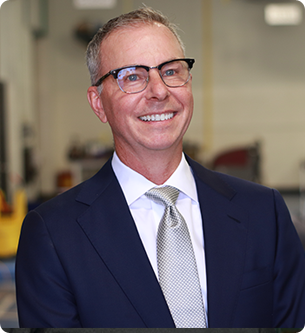The Only Data That
Matters is Yours
The Only Data That Matters is Yours
I first heard this saying when Saint Clair Systems decided to standardize its sales process.
We had a lot of eggs in one basket with two very good customers, but saw an obvious need to diversify our sales. So we ventured out to look for a measurable, results-driven sales training platform. Once we found the right fit, I heard someone say it: “The only data that matters is theirs.”
In a sales context, this notion was geared towards quantifying a pain point. We were able to extrapolate the phrase to both quantification and qualification of a result.
We were at a point where we knew why process temperature control was important, and where it could make the most impact. So we started to think about it in terms of data. In an effort to prove that temperature control would make a difference to a process, we were collecting as much data as we could and simply hoping the people we gave it to would understand it.
Some people might say that this data was theoretical; even historical. But the bottom line is it didn’t matter what data potential customers were given. The only data that mattered was the data produced by their equipment, on their process.
Your Process. Your Data. Your Results.

Don’t get me wrong: process temperature control has proven to be incredibly valuable over the years. But our goal of being globally recognized as a must-have for process improvement moved us to think differently. That paradigm shift is where the phrase “Your Process. Your Data. Your Results.” originated.
Data is so valuable because it shapes policies, informs decision-making efforts, streamlines operations, and guides the development or procurement of new and innovative products. However, all applications and processes are different. Other people’s data will not necessarily be relative to yours.
One of our now-retired long-term sales guys used to simply send a potential customer a demo unit and tell them to use it for 30 days so they could find out for themselves what temperature control would do for their application. After the allotted time, he would reach out to the customer and let them know that we needed to take the unit out or put it somewhere else. More times than not, their reply was either “You can’t take it!” or “Can we buy it?”
As experts of process temperature control, we thought we needed to hold everyone’s hand and walk them through each step, we realized that customers wanted to see things a certain way. They also wanted to limit the data they gathered to what would matter to them. (This usually happened when they believed there was a problem – some uncontrolled variable - that they needed to uncover for budget approval and a solution purchase).
Saint Clair Systems Demos
When you have a high-quality product that produces a measurable result, a product demonstration can be one of your best sales tools. A tangible solution display like this is interesting and exciting to prospective customers. Most importantly, a demo is an effective way to address their specific product-related concerns.
Think about test driving a car before you buy it. When you test drive a car, you are using pretty much all of your senses to determine if this is the right car for you, but it’s hard to make that determination if the car is just sitting there parked.
A temperature control system is like that. Before you turn it on, a temperature control unit doesn’t have much going on from the outside. Once it’s running, though, you can see and measure how it affects the end result.
We tend to pull out the Saint Clair Systems demo when you know your process has a problem, but aren’t feeling confident that we can actually help. The demonstration unit helps us establish that we’re a good fit for your needs. At this stage, we generally have great success.


